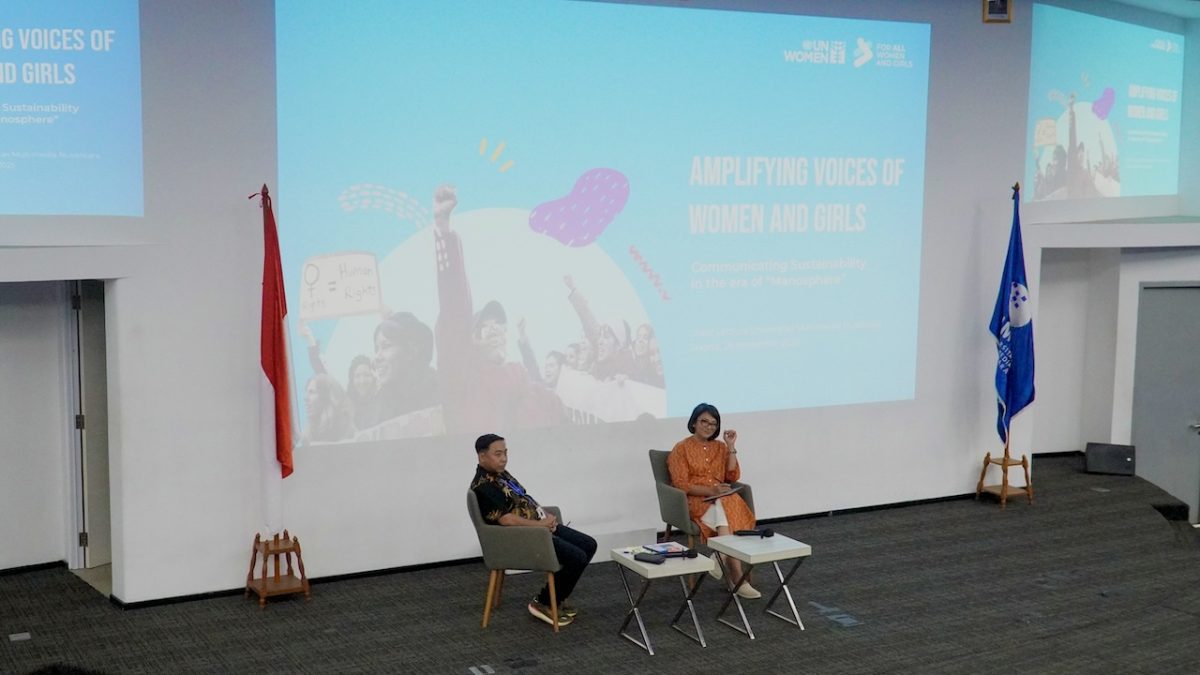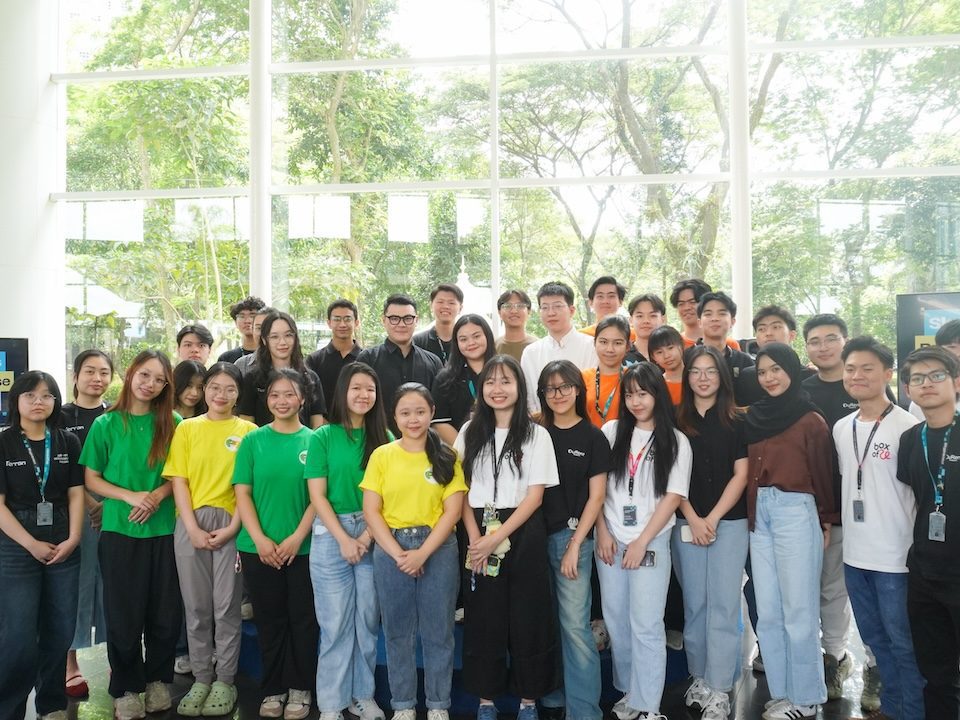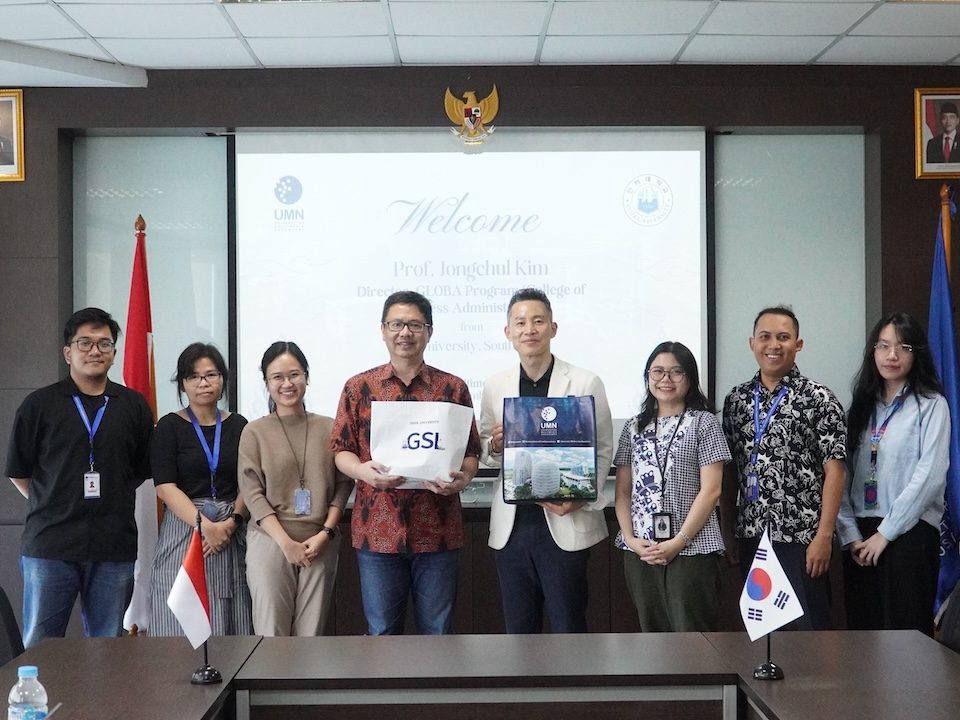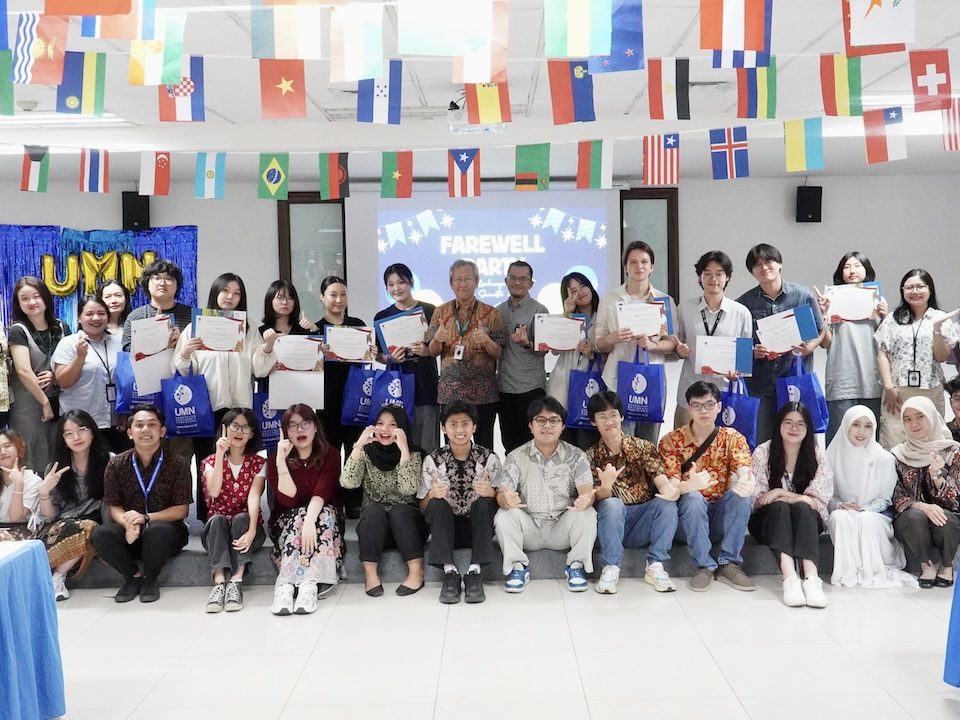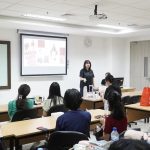
Guest Lecture at The UMN Arts & Design Faculty: Makeup Look Effect
November 21, 2025
Sukagalih Village Strengthens Herbal Potential Through Planting, Growing, Harvesting (3T) Training and Joint Planting in One Day Tour: Halimun Eco Track
November 27, 2025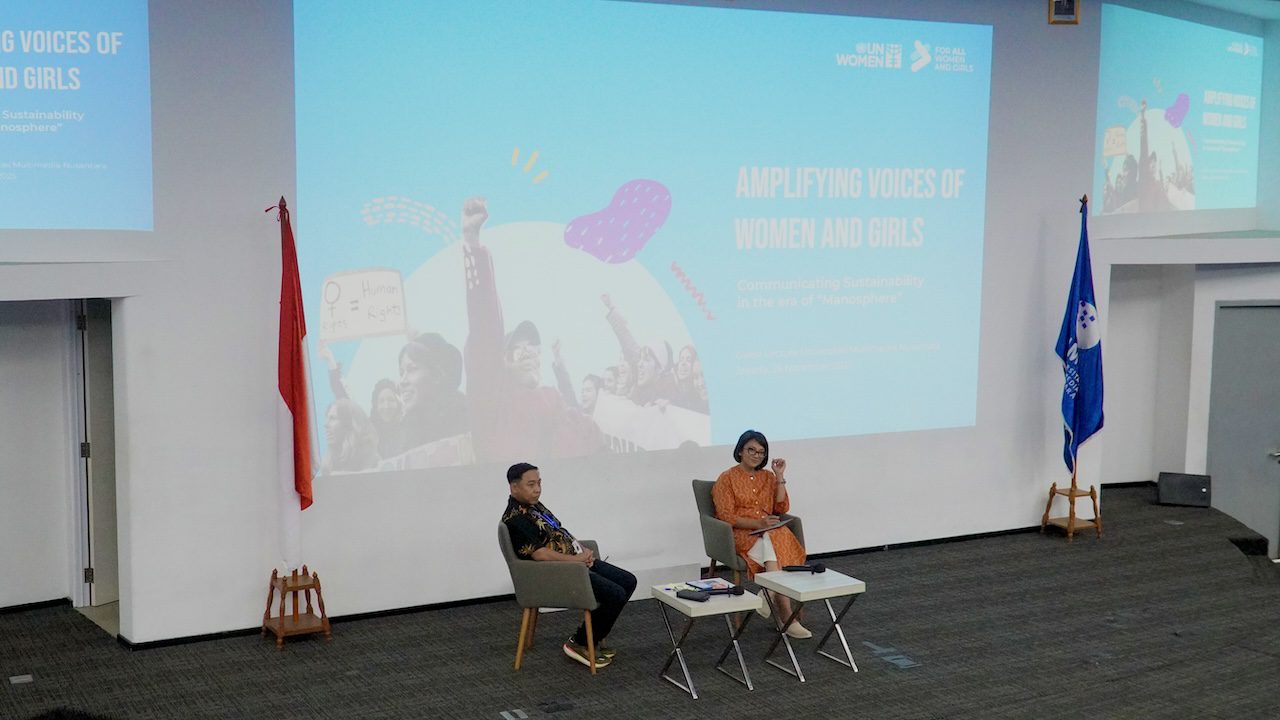
UMN Faculty of Communications guest lecture with Dwi Yuliawati at the Lecture Theatre, UMN Campus. (Doc. UMN)
Tangerang, (11/27/2025) – The Faculty of Communications at Universitas Multimedia Nusantara held a guest lecture featuring Dwi Yuliawati, Head of Programs at United Nations Indonesia. This guest lecture raised the major themes of gender equality and the ‘Manosphere’. It explored in depth how the younger generation supports gender equality both directly and in the digital space.
The issue of gender equality does not involve only men and women. It is a complex global issue that will take a long time to resolve. UMN itself not only prioritizes environmental issues but also fully supports social issues, including gender equality. Attention to this issue is a concrete step taken by UMN to instill moral values and critical awareness in the UMN academic community.
“This journey began in 1970, with the first conference that brought together women from various countries, from the most developed countries to those that are still developing. The main problem in all countries remains the same: sexual violence. This condition has not changed, and the reality of the world is very chaotic,” Dwi said.
Speaking about global ideas and the Sustainable Development Goals (SDGs), Dwi herself stated that global considerations are based solely on data and numbers. The main concerns are carbon use, fossil fuels, biodiversity, and various other issues.
“If we really want to prove the SDGs, we need to pay attention to current needs rather than comparing them to future needs. Redefine whose needs and what we need. And how our communication strategy as women voices this through representation, voice, and narrative,” added Dwi.
In an effort to communicate this, Dwi emphasized these three main points, even though they are still far from successful. However, supporting gender equality is a shared responsibility, not only of biological representatives but also of social ones. A simple example is that caring for people and doing housework are social tasks, not solely the responsibility of women.
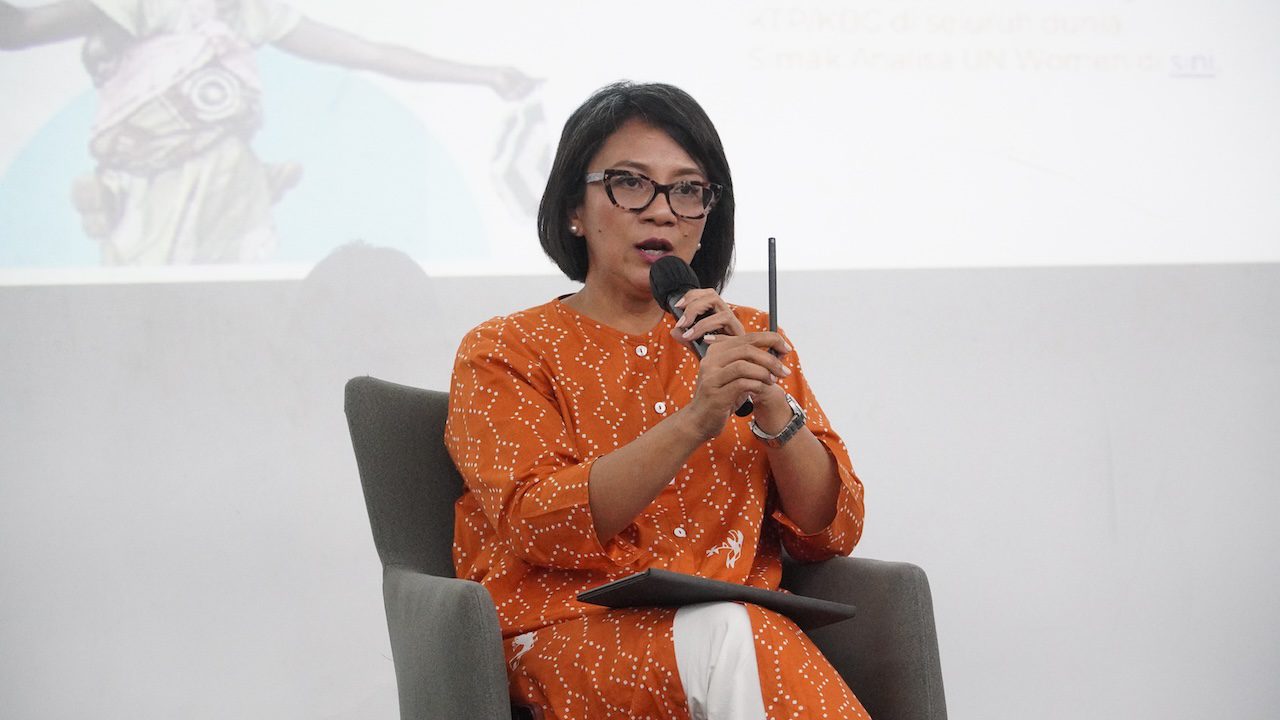
Dwi presented material to students in a guest lecture. (Doc. UMN)
“Talking about the manosphere, it is said to consist of male members or the men’s rights movement. They share the same interests and perspective that ‘women cause all the problems in this world’. The manosphere group has existed since 2017, and one linguistic researcher has observed that this phenomenon is becoming increasingly prevalent on social media due to social media algorithms,” Dwi explained.
According to Dwi, the phenomenon of the manosphere and misogyny only makes the problem more complex. In reality, the issue of gender equality must be resolved by both men and women. Being masculine does not mean you cannot cry, and being feminine does not mean you have to be weak and gentle. This is a social burden that needs to be removed. By starting to realize gender equality, gender-based violence will also decrease.
“The manosphere has various serious impacts that we may not be aware of, ranging from encouraging men to take risky actions, sexist stereotypes and gender-based violence in relationships, increasing the potential danger to women and girls, both in the digital space and the real world, to making men vulnerable to anxiety and other mental health issues,” Dwi explained.
The existence of social media itself further complicates the issue of gender equality. According to Dwi, social media is a double-edged sword for both men and women. This is because women can voice their opinions and speak up without fear, but it also does not reduce the safe space because discrimination is close at hand.
“Social media platforms are now so widespread that everyone can access and view them. So, what can we do about this problem? By fighting our common enemy, namely ‘noise’, the disruption is huge, and only we can control it. In addition to ‘noise’, there is also the latest technology that we are all familiar with, Artificial Intelligence (AI), which is also causing widespread disruption, from hoaxes to deep fakes,” Dwi explained.
This guest lecture is expected to broaden the UMN academic community’s perspective on gender equality and, in the future, increase students’ awareness of global issues. This opportunity is also a strategic step for UMN in supporting SDGs 4 (Quality Education), SDGs 5 (Gender Equality), SDGs 10 (Reduced Inequalities), and SDGs 17 (Partnership for The Goals).
By Rachel Tiffany | UMN News Service
English translation by Levina Chrestella Theodora
Kuliah di Jakarta untuk jurusan program studi Informatika| Sistem Informasi | Teknik Komputer | Teknik Elektro | Teknik Fisika | Akuntansi | Manajemen| Komunikasi Strategis | Jurnalistik | Desain Komunikasi Visual | Film dan Animasi | Arsitektur | D3 Perhotelan , di Universitas Multimedia Nusantara.

